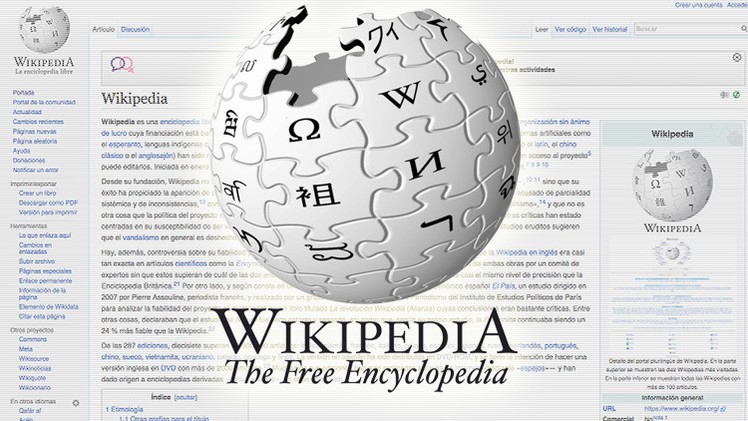Wikipedia was back online in Pakistan on Tuesday, after the country’s prime minister ordered authorities to lift a block imposed on the online encyclopedia over “blasphemous content.”
Blasphemy is a sensitive issue in Muslim-majority Pakistan, and Facebook and YouTube have previously been banned for publishing content deemed sacrilegious.
Minister of Information and Broadcasting Marriyum Aurangzeb tweeted a copy of the order that stated: “The Prime Minister is pleased to direct that the website (Wikipedia) may be restored with immediate effect.”
The Wikimedia Foundation — the non-profit fund that manages Wikipedia — told AFP on Monday that it “was made aware that the Pakistan Telecommunications Authority (PTA) had been directed to restore access to Wikipedia” and hoped to see online traffic in Pakistan “resume soon.”
Last week, the PTA gave Wikipedia 48 hours to remove content deemed “blasphemous”, before it blocked the website.
An agency spokesman had said Saturday that Wikipedia would “remain blocked until they remove all the objectionable material”, without specifying what content was at issue.
On Tuesday, the website was once again accessible.
‘Share knowledge’
According to the order published Monday, Prime Minister Shehbaz Sharif had instructed a committee made up of three government ministers to examine the PTA’s decision to block Wikipedia.
The committee found that the “unintended consequences of this blanket ban… outweigh its benefits,” according to the document, signed by principal secretary to the prime minister Syed Tauqir Shah.
Another ministerial committee would be established to further examine the issue, it added.
“The people of Pakistan rely on Wikipedia both as a knowledge resource and as a pathway to share their knowledge with others,” a Wikimedia spokesperson said.
“Lifting this ban means that the people of Pakistan can continue to benefit from and participate in its growth within a global movement that strives to spread and share knowledge that is verified, reliable and free.”
The organization did not immediately respond to an AFP query on if it had taken any action to remove certain content.
It said in a previous statement that “the Wikimedia Foundation does not make decisions around what content is included on Wikipedia or how that content is maintained.”
“We respect and support the editorial decisions made by the community of editors around the world,” it added.
Free speech campaigners have highlighted what they say is a pattern of rising government censorship of Pakistan’s printed and electronic media.
Pakistan blocked YouTube from 2012 to 2016 after it carried a film about the Prophet Mohammed that led to violent protests across the Muslim world.
In recent years, the country has also blocked the wildly popular video-sharing app TikTok several times over “indecent” and “immoral” content.







